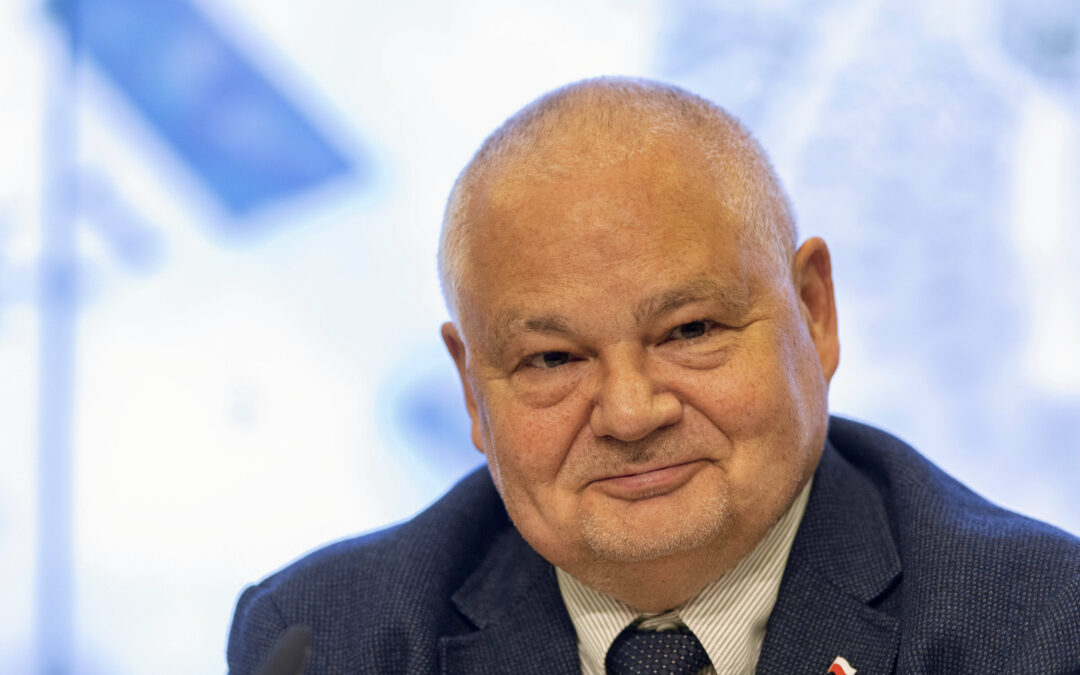The president of the National Bank of Poland (NBP), Adam Glapiński, has been rated as Europe’s joint worst central banker in a new report. The authors point to Glapiński’s passive approach to inflation, which is at its highest levels in two decades.
In its annual report card on the performance of central bankers in major global economies, New York-based Global Finance magazine gave Glapiński a rating of C on a scale that runs from A to F.
That was the joint-lowest grade awarded among the 16 countries rated in Europe, as well as the European Central Bank (ECB). Only Belarus’s Pavel Kallaur and Ukraine’s Kyrylo Shevchenko received grades as low as Glapiński.
At the other end of the ranking, central bankers in four countries – Bulgaria, the Czech Republic, Iceland and Russia – received A grades, as did the ECB’s president, Christine Lagarde.
Global Finance noted that Glapiński has “taken a surprisingly relaxed wait-and-see stance” in response to inflation hitting its highest levels in 20 years. Poland’s annual inflation rate – which reached 6.8% in October, according to preliminary data – has also consistently been among the highest in the EU for two years.
During that time, inflation has surpassed the NBP’s target of 2.5% (allowing for a one-percentage-point deviation). Yet the bank long remained reluctant to intervene, arguing that accelerating prices are only a temporary phenomenon and that low borrowing costs were needed to bolster economic recovery from the pandemic.
However, the NBP unexpectedly raised interests on 6 October for the first time in nine years, from 0.1% to 0.5%. Economists forecast a further hike tomorrow.
“With inflation still expected to remain around the 5% mark by the end of the year, Glapiński may be running out of flexibility soon when it comes to monetary policy responses,” writes Global Finance.
In its ratings, the magazine looks at monetary policy, supervision over banks and the financial system, as well as asset-purchase and bond-sale programmes.
It also assesses the accuracy of forecasts, quality of advice, transparency, independence from political influence, effectiveness and reputation both domestically and abroad.
Glapiński – who has headed the NBP since 2016 and is known to be a close associate of ruling party chairman Jarosław Kaczyński – also received a grade of C last year.
Poland’s central bank is releasing a banknote featuring late president Lech Kaczyński, the identical twin brother of current ruling party chairman Jarosław Kaczyński.
"We want to pay tribute to a great man," says the head of the bank https://t.co/I1IgAu39CO
— Notes from Poland 🇵🇱 (@notesfrompoland) October 18, 2021
On Friday, opposition leader Donald Tusk accused Glapiński of incompetence and called for him to step down at the end of his six-year term in June 2022.
“Poland cannot afford a Glapiński second term,” said Tusk, suggesting that he had kept his current position thanks to being a “close friend” of Kaczyński.
Tusk said the opposition would refrain from politicising the issue in parliament, and back a “neutral” candidate proposed by the ruling camp. “This series of misunderstandings and catastrophes, incompetence and very ambiguous behaviour at the NBP cannot be continued,” he said.
“No inflation target of the NBP has been fulfilled,” he noted, adding that poor communication and unexpected decisions have caused “serious shocks” in the markets.
Poland's central bank chief wants to reintroduce the 1,000 zloty ($266) note, double the current largest bill, saying it would be "more convenient" for people who "hide banknotes in their underwear drawer"
But some fear high denominations facilitate crime https://t.co/5HQIkyaAEI
— Notes from Poland 🇵🇱 (@notesfrompoland) January 18, 2021
Earlier this year, Glapiński raised eyebrows by suggesting the introduction of a 1,000 zloty note to make it easier for the NBP to store its cash reserves as well as for people to keep money in “underwear drawers” at home.
He previously oversaw the introduction of Poland’s current highest-value note, 500 zloty in 2017, bucking an international trend for countries to move away from high denomination notes, which can facilitate money laundering and other forms of crime.
Glapiński also faced negative press coverage in 2019 over the unusually high salaries and lack of formal qualification of two senior aides.
More pressure on the central bank (NBP) governor after reports that one of his senior directors earns 65,000 zloty/month (more than the last NBP governor himself earned). She lacks obvious qualfications for the job (but is a former PiS local politician) https://t.co/ixz1cUvprZ
— Notes from Poland 🇵🇱 (@notesfrompoland) December 28, 2018
Main image credit: Dawid Zuchowicz / Agencja Gazeta

Maria Wilczek is deputy editor of Notes from Poland. She is a regular writer for The Times, The Economist and Al Jazeera English, and has also featured in Foreign Policy, Politico Europe, The Spectator and Gazeta Wyborcza.




















